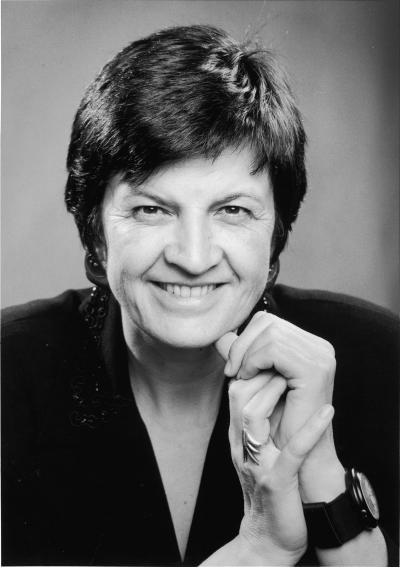December 2, 2004
UW associate dean is Australia-bound
Maresi Nerad, director of the UW’s Center for Innovation and Research in Graduate Education (CIRGE) and associate dean for research in the Graduate School, has powerful ideas about the future of doctoral education, in the U.S. and worldwide.
And as a recipient of a prestigious Miegunyah Fellowship, Nerad, who also is on the faculty of the College of Education’s Higher Education program, will spend winter quarter sharing these ideas and more at the University of Melbourne in Australia. There, she will give public lectures, consult on graduate education and establish a graduate student exchange between the two institutions. Her progressive, global approach to doctoral education is glimpsed in the title to the central public lecture, which she is already preparing: From Grad Student to World Citizen.
Beyond the fellowship, Nerad also plans to bring government, research and education representatives from many countries to the UW in 2005 for a three-day conference on the evolution of doctoral education.
Much of this stems from Nerad’s ongoing work on career outcomes among former doctoral students, which has received $1.3 million in funding over four years from the Ford Foundation.
As Mark Twain famously said of the weather, Nerad says of the study of doctoral student outcomes: There’s a lot of talk, but few people do anything about it. She’s starting to change that with a series of surveys of doctorate holders five, 10 and up to 14 years out of school, to learn what career path they wanted, what they achieved or settled on, and their relative satisfaction with their route.
“Everyone thinks all PhDs want to become professors,” she said, “but it’s not always so. I’m writing a book about the common misconceptions.” That book is tentatively titled PhD: Passport to Multiple Destinations.
So far, Nerad said, the surveys have revealed the highest level of job satisfaction among holders of doctoral degrees — judged by the level of work autonomy, intellectual challenge and career growth their positions provide — is, surprisingly, among executives and CEOs in business, industry and nonprofit organizations. In short, people outside of academe.
Coming in second place are faculty administrators, followed by scientists at national laboratories, and, in fourth place, tenured faculty. Perhaps not so surprisingly, non-tenured faculty ranked seventh and last among the doctoral degree recipients surveyed, with fewer than one in five expressing true job satisfaction.
Such national career path surveying, Nerad said, provides a “feedback loop” that can be used to improve current doctoral programs. Few universities stop to study whether the programs they offer adequately prepare students for the future. “Too often, you only hear of the famous ones,” she said, and never know the outcome of the other graduate students as they fan out into industry, government or nonprofits.
This leads to Nerad’s views about needed reforms in doctoral education worldwide, which include greater sharing of ideas between disciplines and a widening of student experience with other cultures.
Gaining a world perspective on one’s home country also expands a student’s education greatly, she said. That’s why she is arranging an exchange of graduate students in coming years between the UW and the University of Melbourne that she hopes can be used as a model for other Pacific Rim universities.
“I’d like to see our graduate students have an opportunity — even if it’s just a small one — to see the U.S. from a different perspective, to view it with outside eyes,” she said. “Being confronted with another culture is one of the best educational tools.”
Another major needed reform in graduate education, Nerad said, is the idea of interdisciplinarity, or creating doctoral education programs that address a wide, if complicated topic — the environment, for instance — from several perspectives at once, rather than spreading out such work across different departments. This would require a realignment of academic departments as well as faculty support and budgeting mechanisms, she allowed, but would ultimately help different disciplines share work toward a common goal.
“You do not do away with any disciplines,” she said, “but find a good proportion between discipline-based and interdisciplinary programs, because we need people who can understand and speak to each other across disciplinary boundaries.”
Nerad said, “Problems have become too big to be solved by individual people — we need to solve them as a team.”



